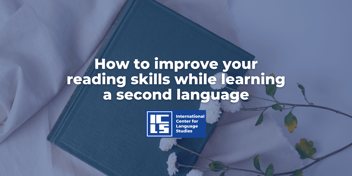Can I Learn French on My Own?

The short answer is yes—you can learn some French on your own, without a tutor or a teacher. But how much French you learn and the skills you develop largely depend on your approach, goals and motivation. If you're aiming to read in French, that's the easiest skill to acquire on your own. This is because we can often transfer our reading skills from our native language to a new language, particularly if they belong to the same language family or at least share an alphabet. However, if your goal is to speak French with some level of fluency, you'll need to be particularly self-regulated and proactive in your learning.
Getting Started: The Basics
One of the most popular starting points for independent language learners is Duolingo, or a similar app. It’s accessible, user-friendly, and provides a foundation in vocabulary and basic grammar. However, apps like Duolingo only take you so far. They introduce you to the language, but they can’t provide the depth, or the interactive practice needed to develop real fluency, especially in speaking.
Beyond Apps: Expanding Your Learning
To move beyond the basics, you'll need to diversify your learning methods. Here are a few strategies:
Vocabulary Building
You can teach yourself vocabulary using flashcards, apps like Anki, or by keeping a dedicated language journal. Writing down new words, phrases, and their meanings helps reinforce memory. The act of writing also engages your brain differently than typing or just reading, which can make the vocabulary stick better.
Pronunciation Practice
Recording your pronunciation with a tool such as Vocaroo and comparing it to that of native speakers is a great way to refine your accent. Websites like Forvo allow you to hear native speakers pronounce words and phrases, giving you a reliable reference point. Consistent practice is key here; over time, you’ll start to notice improvements in how you sound.
Generative AI Tools
Using AI tools like ChatGPT or other language-specific platforms, you can create simple lessons, dialogues, and practice scenarios tailored to your interests. These tools can generate short texts for you to read or listen to, allowing you to practice both comprehension and pronunciation. See our blog on 6 ways to use ChatGPT to learn a language for more specific guidance on this approach.
A Word About AI Language Partners
AI language partners such as Talkio or Gliglish can help you build confidence and function as supplemental tools, but after a while, the conversation becomes sterile. Speaking to a computer is vastly different from speaking to another human being with whom you make a connection. A human conversation allows you to share memories, preferences, and experiences, creating a depth of interaction that a robot simply cannot replicate.
Media Consumption
Immerse yourself in French by listening to music, watching French TV shows or movies (insert link to 5 French series to watch), and reading or listening to news articles. Check out for example the news in easy French website. This not only improves your comprehension but also exposes you to cultural nuances that are integral to mastering the language. Services such as Yabla and Lectia offer curated content with interactive features to help you understand and practice the language. Memrise will help you memorize vocabulary.
The Limits of Self-Study
Despite the wealth of resources available for self-study, it’s important to remember that language is inherently social. The ultimate goal of learning a language is to communicate, and communication requires interaction with others. While you can develop some proficiency on your own, you'll eventually need to engage with a human counterpart—whether that’s a tutor, a teacher, or a conversation partner.
A tutor not only encourages you to speak but also provides invaluable feedback on your pronunciation, grammar, and fluency. Additionally, they can offer subtle yet crucial cultural insights that you won’t get from an app. These insights can make the difference between speaking French well and truly mastering it.
An experienced teacher not only has a deep understanding of the language, but they also know how to make the learning process more accessible and effective for you. They’re familiar with common challenges that American learners face and have expertise in language acquisition strategies. If you’re new to language learning, you might have misconceptions about what it takes to become fluent (hint: it’s not just memorizing grammar rules and completing worksheets!).
Final Thoughts
If your goal is to speak with people in French, you'll need to incorporate real human interaction into your learning process at some point. However, all the work you do on your own — listening to music, watching shows, reading the news — will speed up your progress. Independent learning is a powerful way to build a foundation, but to become truly fluent, quickly, you need to practice with others. Learning French, like any language, is not just about words and grammar — it’s about connecting with people.
Are you ready to go beyond language apps and finally achieve your language goals? Step up to a next level learning experience with ICLS, where diplomats and global professionals sharpen their French language skills. Whether you prefer private instruction or a group class, we've got you covered.


